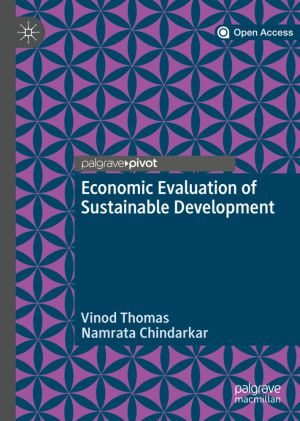- Регистрация
- 27 Авг 2018
- Сообщения
- 37,514
- Реакции
- 535,956
- Тема Автор Вы автор данного материала? |
- #1

This book presents methods to evaluate sustainable development using economic tools. The focus on sustainable development takes the reader beyond economic growth to encompass inclusion, environmental stewardship and good governance. Sustainable Development Goals (SDGs) provide a framework for outcomes. In illustrating the SDGs, the book employs three evaluation approaches: impact evaluation, cost-benefit analysis and objectives-based evaluation. The innovation lies in connecting evaluation tools with economics. Inclusion, environmental care and good governance, thought of as "wicked problems", are given centre stage. The book uses case studies to show the application of evaluation tools. It offers guidance to evaluation practitioners, students of development and policymakers. The basic message is that evaluation comes to life when its links with socio-economic, environmental, and governance policies are capitalized on.
Vinod Thomas, Visiting Professor at Lee Kuan Yew School of Public Policy, NationalUniversity of Singapore, was Senior Vice President, Independent Evaluation,at the World Bank. He has authored 16 books including Climate Change andNatural Disasters.Namrata Chindarkar is Assistant Professor at Lee Kuan Yew School of PublicPolicy, National University of Singapore. She has published widely on sustainabledevelopment, social policy, infrastructure, poverty and inequality, and gender.
"Readers can gain much from the knowledge and wisdom reflected in its pages." - Arnold Harberger, Distinguished Professor Emeritus, University of Chicago and University of California Los Angeles
"I recommend it highly." - Jyotsna Puri, Head, Independent Evaluation Unit, Green Climate Fund
"The strength of this book is the clarity of its exposition, backed up by many examples". - Martin Ravallion
DOWNLOAD:



